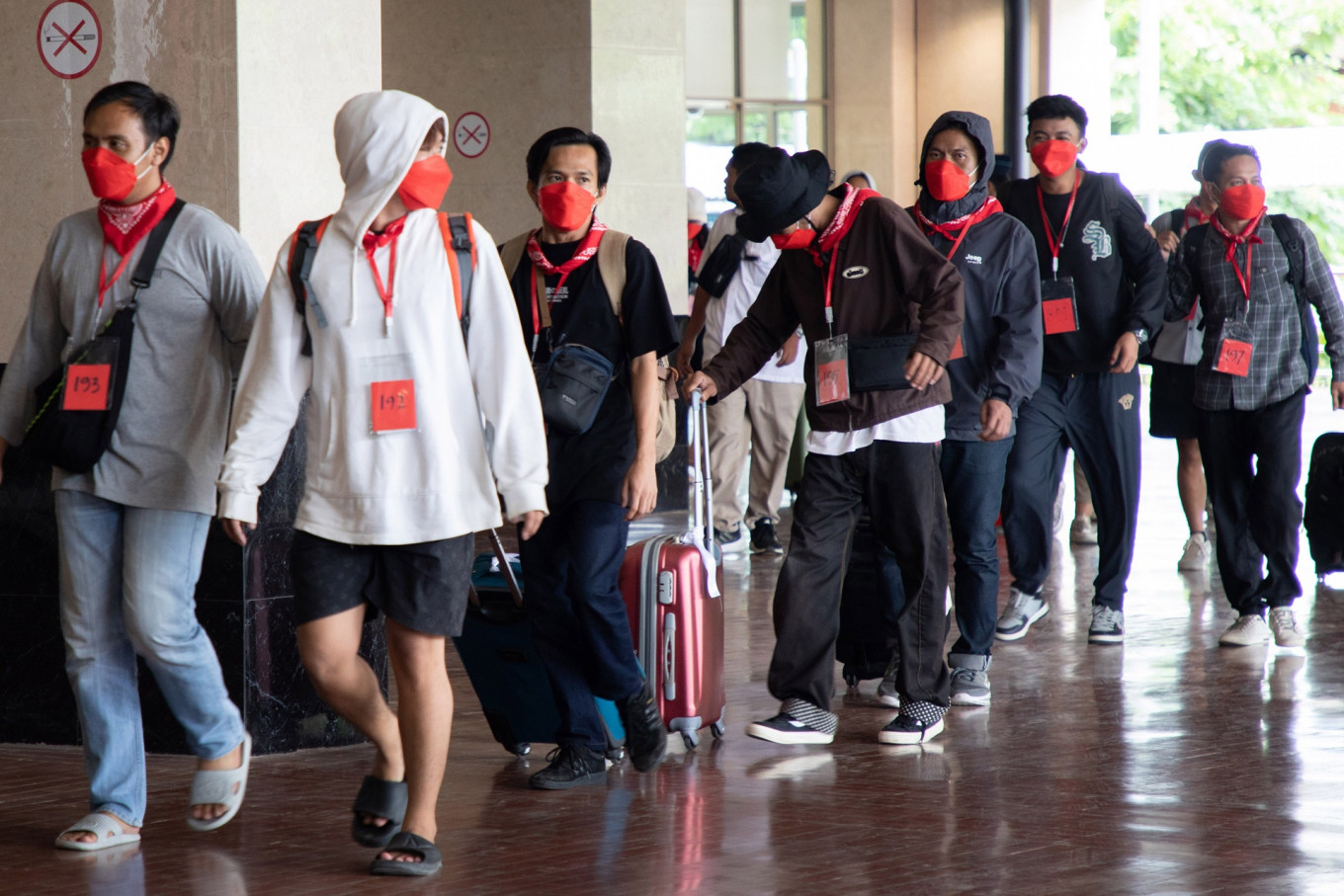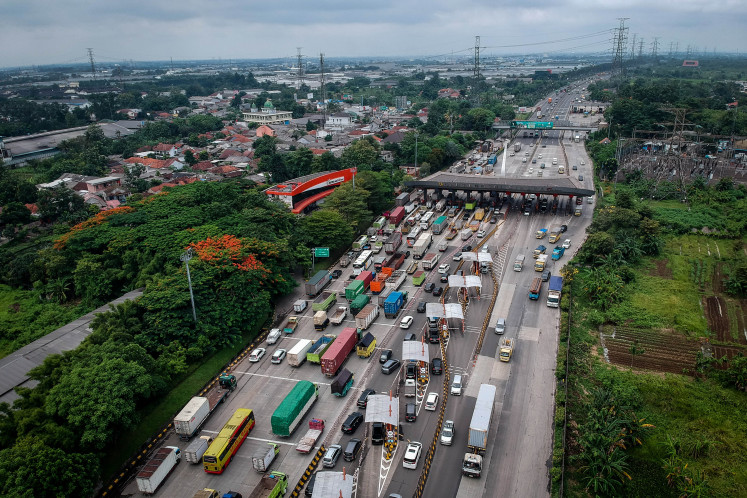Popular Reads
Top Results
Can't find what you're looking for?
View all search resultsPopular Reads
Top Results
Can't find what you're looking for?
View all search resultsSoutheast Asia’s online scam industry is a global menace
Operators now have years of accumulated knowledge at their disposal and can use this database of information to identify weak spots in their potential victims.
Change text size
Gift Premium Articles
to Anyone
L
ast month, China’s President, Xi Jinping, undertook a tour of ASEAN countries in an effort to shore up his country’s relationships amid rising tensions and fears of a full-blown trade war with the United States.
While these visits sought to tighten diplomatic ties and deepen economic collaboration, a troubling issue continues to fester in many countries: The growing proliferation of cybercrime and multi-billion-dollar cyber scam networks.
Originating in China, many of these scam centers, which are operated by or with the support of the Chinese mafia, have taken root within ASEAN in recent years. Thriving on corruption and a lack of transparency, these operations have seized on the willingness of certain countries, such as Cambodia and Myanmar, to serve the interests of Beijing.
Now at what the United Nations Office on Drug and Crime (UNODC) calls an “inflection point” for cybercrime regionally, nations around the world are stepping up their responses to the risk of online fraud by scam centers in Southeast Asia.
These centers, which were once directed at domestic victims, have since gone global with the adoption of AI. This has allowed for the development of alternative online worlds, into which victims are pulled and subsequently defrauded. Operators also now have years of accumulated knowledge at their disposal, and can use this database of information to identify weak spots in their potential victims.
For example, people who are worried about online banking are being targeted by callers purporting to represent law enforcement agencies, requesting they share their card details for investigation. Similarly, people who want to start a relationship online, find themselves talking to people who seem to match their criteria perfectly. These disarming, and increasingly sophisticated tactics can have crippling impacts for citizens not just in Asia, but across the globe.
US-based Heartland Tri State Bank is a case in point. It collapsed in 2024 after its CEO, Shan Hanes, was found guilty of embezzlement and imprisoned for making US$47 million in wire transfers to cyber-scammers. The scammers had convinced him to invest in a bogus cryptocurrency scheme, and Hanes watched his “investment” increase in value on a fake website.
The bank’s failure cost the Federal Deposit Insurance Corporation $54.2 million to reimburse savers. Local Kansas shareholders in the bank, including farmers and teachers, saw their investment wiped out. While marketplaces, often via Telegram, are providing a platform to all to extract and launder criminal proceeds around the world.
Some countries in the ASEAN region, including the Philippines, Laos and Myanmar have taken steps in response to international pressure to crack down on cybercrime operations within their environs.
However, in the case of Cambodia there has been willful ignorance to an industry that is harming ordinary Khmer citizens and those in the wider region. The UNODC points out that there has been no sustained law enforcement drive by the political regime in Phnom Penh since a series of raids focused on Sihanoukville in 2022.
And there is growing evidence that the laxness on the part of Hun Manet’s administration is acting as a pull factor for this criminality. In February this year, shortly before Filipino police rescued over 30 Indonesian nationals from a Chinese-run online operation in Pasay, its operators were exploring a move to Cambodia.
The role of certain ASEAN members in propagating cybercrime runs deep in some cases. O-Smach Resort Case, near the Thai border in Cambodia, has been repeatedly identified as a major hub for cyber scam operations and human trafficking. Victims at this center have described horrific working and living conditions, including long hours, physical abuse and threats of violence if they fail to meet scamming targets, which include "pig butchering" investment fraud and romance-related scams.
In September 2024, the US Treasury Department sanctioned Cambodian tycoon and cabinet-level advisor, Ly Yong Phat, and his LYP Group Co., which owns O-Smach Resort, specifically citing "serious human rights abuses related to the treatment of trafficked workers subjected to forced labor”.
A subsequent US Trafficking in Persons (TIP) Report also noted that the Cambodian government has failed to adequately investigate and hold accountable officials involved in trafficking crimes, including those linked to cyber scam operations. This is a problem that is not exclusive to Cambodia, but also to other ASEAN members, including Myanmar.
This shows that there is still more to do, particularly among ASEAN members, to clamp down on these complex and increasingly cross-bordered operations.
Members should push for an independent investigation into the casinos used for cybercrime operations, including those owned and operated by Hun Manet’s cousin, Hun To, who has been accused of illegal activities for decades, as well as the police and military figures complicit in protecting the mafia.
The findings of this investigation, processed through reformed courts, must lead to the removal of the mafia, the sanctioning of those involved and a fundamental opening of the country. Without this, both the security and economy of the region will continue to be threatened.
The UNODC has been clear that corruption and lack of effective governance are driving factors in the growth of cybercrime. Governments in Southeast Asia must act if they are serious about protecting their citizens.
---
The writer is a Cambodian youth activist, Human Rights Foundation Freedom Fellow, and youth ambassador for the Khmer Movement for Democracy.











